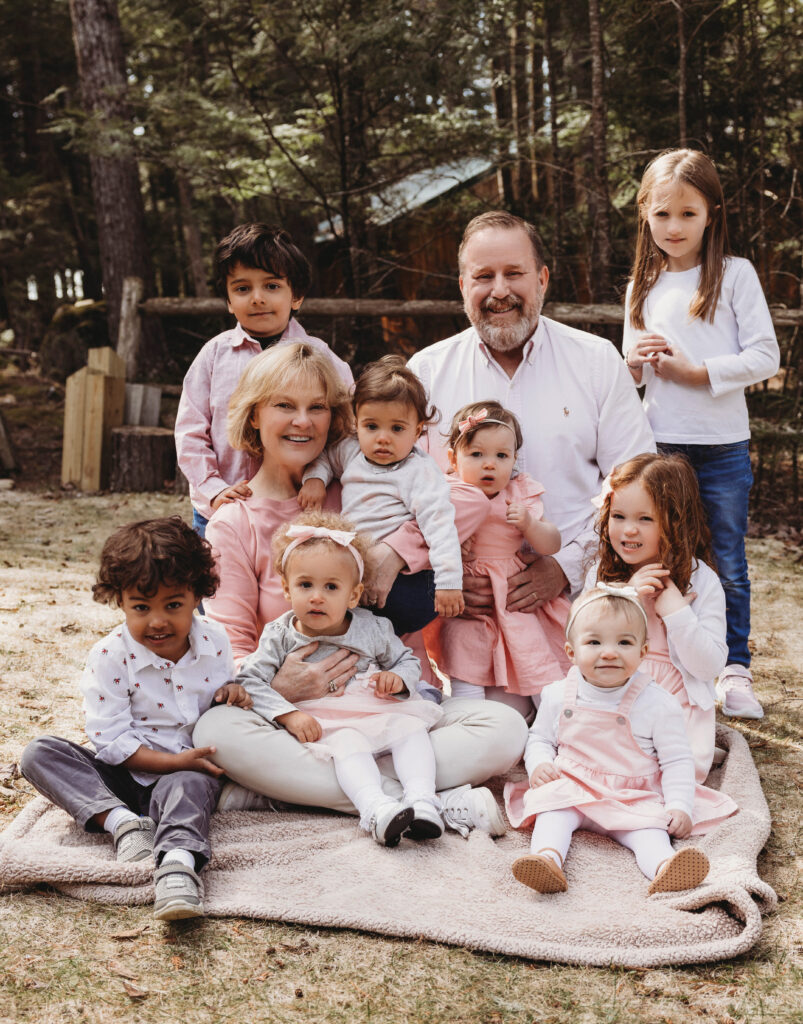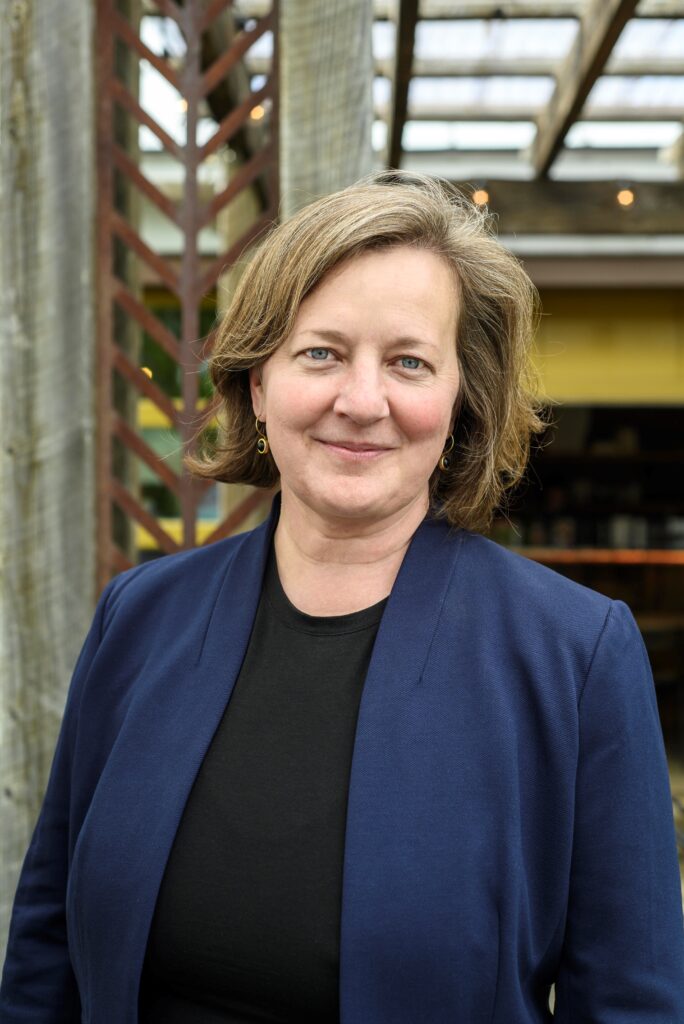New voices from Western Maine

Shawn Yardley and his wife, Rita, with their grandchildren. They split their time between Bowerbank and Bangor. Family photo
Shawn Yardley: Bowerbank
Shawn Yardley has spent his career helping fellow Mainers navigate challenges - from at-risk children to people left on the streets of Lewiston as doors closed during the pandemic.
Now, as retirement beckons, Yardley continues to center his life on people. A father, child welfare caseworker, educator, and nonprofit CEO, he will draw on his lifelong experiences as he joins MaineCF's board of directors.
Yardley and his wife, Rita, both grew up in Washington County and met as students at the University of Maine in Orono. As he nears the end of his career, he continues his work as a special assistant to the board of Community Concepts in Lewiston. Yardley led the nonprofit that serves Western Maine for seven years.
He is passionate about racial equity and what he learned as a child living near two tribal reservations. He and his wife adopted three biracial sisters who were in foster care and their multicultural family includes seven adult children and nine (and counting) grandchildren.
"I've really thrown myself into equity and diversity," he said. "I live it in my own life and then I live it at work; I have a perfect scorecard in terms of I'm white, I'm male, I'm old, and I've got power and influence. So, I really struggle how to use that for good but not perpetuate the existence of it."
Yardley deepened his understanding of systemic racism by participating in two cohorts of MaineCF's Leadership Learning Exchange for Equity. The program, now administered by Thomas College, brings together white leaders who work in various sectors of Maine's economy. The goal: Help leaders recognize the place racial equity has in their personal life, workplace, and community.
"What I've tried to bring to my work and racial diversity and equity is recognizing that I'm part of the problem — but also trying to put a different lens on the systems we have and not being hung up on treating everybody exactly the same but treating everybody equitably," he said.
Lewiston's diversity provided Yardley an opportunity to put action to words. He built trusting relationships with immigrant-led community groups in Androscoggin County. He committed Community Concepts to hiring more Black, Indigenous, and other people of color. And he focused on outreach to recruit candidates, acknowledging the barriers that some applicants might face.
"I've immersed myself as much as I can to be at every table, not as a leader, but as an ally," Yardley said, "and as someone who can perhaps translate it back to the policies that get imposed on us."

Amber Lambke's volunteer work with MaineCF began on the Western Mountains Committee, where she learned what a difference small grants can make to both established nonprofit organizations and new projects looking for a leg up. Stacey Cramp photo
Amber Lambke: Skowhegan
Amber Lambke has seen firsthand how the power of philanthropy, volunteers, and innovative ideas can shape a community's future.
Two decades ago, she was a newcomer to Skowhegan, a speech pathologist who had joined her new husband in the town where he practiced medicine. Today she co-owns Maine Grains, a gristmill business that has drawn an international following for its role in reviving regional grain production.
Maine Grains celebrated its 10th anniversary in September as Lambke joined Maine Community Foundation's board of directors. She's no stranger to MaineCF, where she served nine years as a member of the Western Mountains Committee and saw firsthand how MaineCF grants help nonprofit organizations build capacity or launch projects.
Lambke's transition from working with children and adults who have communications disorders to starting a thriving business and rural food hub was "organic," she says. She had already gained a broader understanding of Maine as she traversed the state for work and learned the value of task analysis and problem solving.
She put those lessons to work as a volunteer in 2005 when Skowhegan gained Main Street Community designation and support for downtown revitalization. Her task: help grow the town's small farmers market, which many residents didn't even realize existed.
"The farmers market allowed us to understand the opportunities and challenges of farmers in Maine, but also led us to partner at the national level to really address food security," Lambke said. About half of the town's residents qualify for federal nutrition assistance.
Collaborative efforts to broaden awareness of local food gave the farmers market a boost. Organizers purchased an electronic benefits transfer (EBT) machine so shoppers could use nutrition assistance funds for purchases. Coupon books matched EBT purchases with coupons for more food. Doctors provided prescriptions for fruits and vegetables from local farmers to consumers who agreed to nutrition counseling and health tracking.
But one big piece of the food puzzle was still missing: local grains. While Skowhegan and other local towns had once processed grains, production of grains for food increasingly moved to the Midwest. The Kneading Conference in Skowhegan, co-founded by Lambke, brought farmers and millers together for the first time in 2007 to explore how Maine could revive its grain production.
"A shift was happening to see business as being a potential force for good — in particular, the food and farming businesses being a solution to other community issues like hunger and land utilization and job creation," Lambke said.
By 2012, Lambke and her partner Michael Scholz had explored grain production around the world and raised capital to launch Maine Grains with philanthropic funds, loans, and personal investment. They purchased the old Somerset County Jail to house the gristmill.
Today Maine Grains has created 20 jobs at the mill with another 20 in its café and other businesses at the facility, expanded the farmers market space, and revitalized a block of Skowhegan's downtown. The business will expand into a new building as Skowhegan's downtown prospers and develops a riverfront recreation area with MaineCF support.
"l feel very lucky to be living in Skowhegan at this time, where I will be able to enjoy the fruits of my labor in my lifetime," Lambke said. "I'm proud that we've been able to find local solutions by partnering across sectors to create positive solutions for the economy that help people thrive."





